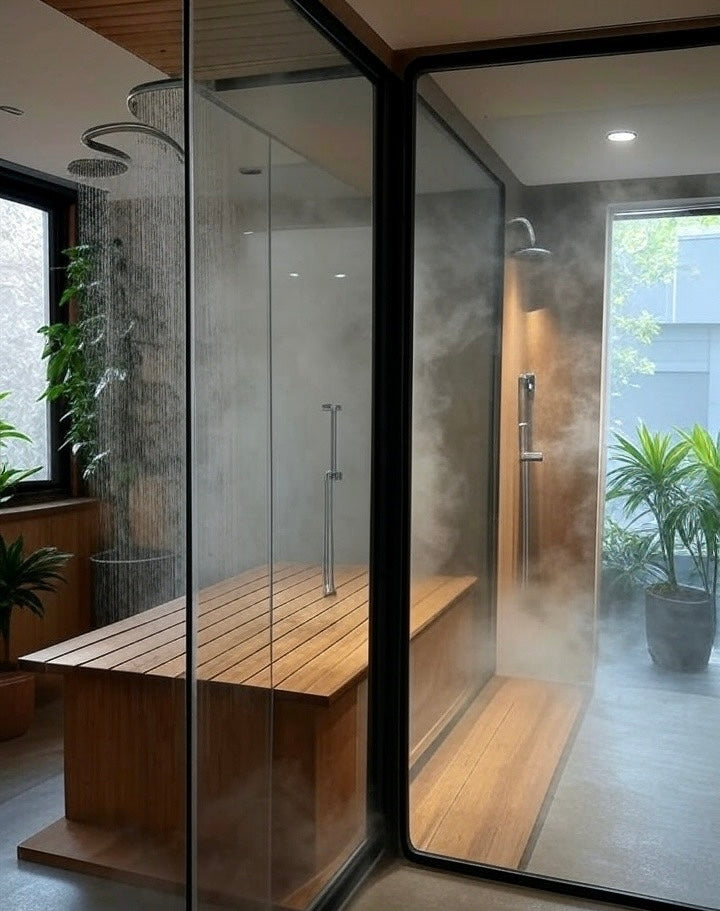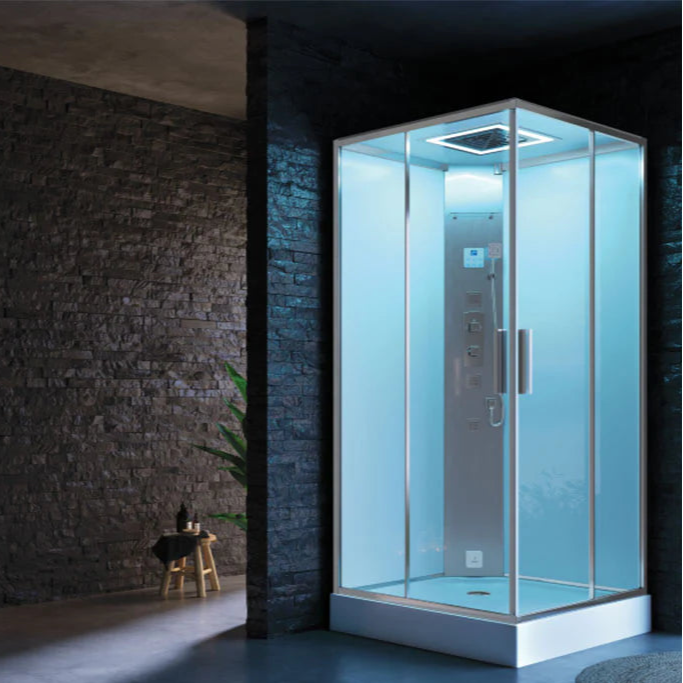Feeling low on motivation or joy? Turns out, a Sauna/Infrared Sauna might do more than make you sweat—it could boost your dopamine too! Short answer: yes, an Infrared Sauna can help lift your mood. Keep reading to discover how a Home Sauna, Garden Sauna, or Outdoor Sauna parks happiness naturally.

The Science Behind Infrared Saunas and Your Brain Chemistry
Stepping into an infrared sauna may feel relaxing, but what’s going on inside your brain is far more exciting.
Infrared sauna therapy activates several chemical messengers that influence mood, focus, and emotional balance.
Let’s explore how dopamine, serotonin, endorphins, and other neurotransmitters respond to heat—and why that post-sauna buzz feels so good.
Understanding Dopamine and Its Role
What is Dopamine? (Reward, Motivation, Focus)
Dopamine is often called the “motivation molecule.”
It plays a key role in how we experience pleasure, form goals, and stay focused.
It’s part of the brain’s reward system and deeply tied to motivation and attention.
When dopamine dips, we may feel low in energy, distracted, or emotionally flat.
Other Key Neurotransmitters (Serotonin, Endorphins, Norepinephrine, BDNF)
While dopamine gets much of the credit, serotonin supports emotional stability.
Endorphins reduce pain and create euphoria, while norepinephrine heightens focus and alertness.
BDNF (Brain-Derived Neurotrophic Factor) aids brain repair and growth.
Each of these plays a vital role in mental well-being—and all are impacted by infrared sauna use.
How Infrared Sauna Use Influences Neurotransmitters
Heat Stress and the Body’s Response (Sympathetic Nervous System, HPA Axis)
A session in an infrared sauna raises core body temperature gently.
This mild heat stress activates the sympathetic nervous system and the HPA axis (hypothalamic-pituitary-adrenal).
These systems regulate how your body produces stress hormones and neurotransmitters.
It’s this carefully controlled stress response that drives mental and physiological benefits.
Direct Impact on Dopamine and Serotonin Production
Heat exposure has been shown to raise dopamine levels, giving a lift in mood and motivation.
At the same time, serotonin production increases, contributing to emotional steadiness.
These shifts activate your brain’s reward and relaxation pathways.
You may feel lighter, calmer, and more optimistic post-session.
Boosting Endorphins and Norepinephrine for "Feel-Good" Effects
An infrared sauna also triggers a rise in endorphins, similar to a “runner’s high.”
It increases norepinephrine too, which boosts mental clarity and attention.
This combination creates that distinctive, energised post-sauna feeling.
The Role of Brain-Derived Neurotrophic Factor (BDNF)
BDNF increases with regular heat exposure.
It helps with neurogenesis, or the formation of new brain cells.
Higher BDNF levels are linked to better memory, learning, and mood stability.
This makes your home sauna or outdoor sauna a simple way to support brain health.
Beyond Dopamine: Comprehensive Mental Health Benefits of Infrared Saunas
Mood Enhancement and Emotional Regulation
Alleviating Symptoms of Depression
Infrared saunas may help reduce symptoms of mild depression.
This is likely due to raised levels of dopamine, serotonin, and BDNF.
Together, they support a more balanced, positive mental state.
Reducing Anxiety and Stress Levels
The heat encourages relaxation by lowering cortisol and shifting the nervous system into a calmer state.
This reduces mental tension and physical stress.
You’ll likely feel more grounded after a session.
Promoting Overall Well-being and Calmness
Over time, consistent sauna use can improve mood, lower irritability, and enhance emotional resilience.
Many people report a stronger sense of inner calm and well-being after just a few sessions.
Improved Cognitive Function and Mental Clarity

Enhancing Focus and Concentration
Elevated dopamine and norepinephrine levels improve your ability to concentrate.
After a sauna, you may find it easier to stay on task or think clearly.
Combating Brain Fog
The sauna boosts circulation and oxygen delivery to the brain.
It also helps clear toxins that contribute to mental sluggishness.
The result? Sharper thinking and a more alert mind.
Supporting Neurogenesis and Brain Health
Infrared heat increases BDNF, which supports long-term brain function.
This helps protect against cognitive decline and may even enhance learning capacity.
Just a few weekly sessions can bring noticeable mental benefits.
Better Sleep Quality
Relaxation Response for Restorative Sleep
Heat exposure encourages relaxation, making it easier to fall asleep naturally.
Infrared saunas reduce physical tension and slow down a racing mind.
Many users report deeper, more restful sleep after evening sessions.
Regulating Circadian Rhythm
By helping balance melatonin and lowering cortisol, saunas support your body’s natural sleep-wake cycle.
Regular use can help regulate bedtime routines and improve morning alertness.
Practical Considerations for Integrating Infrared Saunas into Your Wellness Routine
What to Expect During an Infrared Sauna Session
Temperature and Heat Penetration (vs. Traditional Saunas)
Infrared saunas operate at lower temperatures (roughly 45–60°C), but the heat penetrates more deeply.
This allows for greater comfort and effectiveness compared to traditional saunas, which rely on hot air.
The "Sauna High" and Post-Session Sensations
Many people describe a pleasant “sauna high” after a session.
This is due to raised endorphins, dopamine, and a relaxed nervous system.
It feels like mental clarity meets physical ease.
Recommended Usage and Consistency
Session Duration and Frequency Guidelines
Start with 15–20 minute sessions, around 2–4 times per week.
You can increase the time gradually as your body adapts.
Consistency is essential for ongoing results.
Importance of Hydration
Drink water before and after each session.
Infrared saunas promote sweating, and hydration helps flush toxins and reduce fatigue.
Adding electrolytes may also help.
Listening to Your Body and Safety Tips
If you feel light-headed or overheated, exit the sauna and cool down.
Avoid use if you're dehydrated, unwell, or under the influence of alcohol.
Check with a doctor before starting if you have any medical concerns.
Infrared Saunas as an Adjunctive Therapy
Complementing Traditional Mental Health Approaches
An infrared sauna is not a replacement for professional treatment.
However, it can complement therapy and medication by supporting brain chemistry and emotional balance.
Holistic Approach to Wellness
Infrared sauna use fits well within a whole-body wellness plan.
Combined with sleep, movement, and nutrition, it supports a strong and resilient mind.
Takeaways
-
Infrared sauna sessions boost dopamine, serotonin, endorphins, and BDNF
-
Benefits include elevated mood, better focus, and improved sleep
-
Regular use supports mental clarity and emotional balance
-
Easy to enjoy from a home sauna, garden sauna, or outdoor sauna
-
Drink water, stay consistent, and let your body guide your routine






